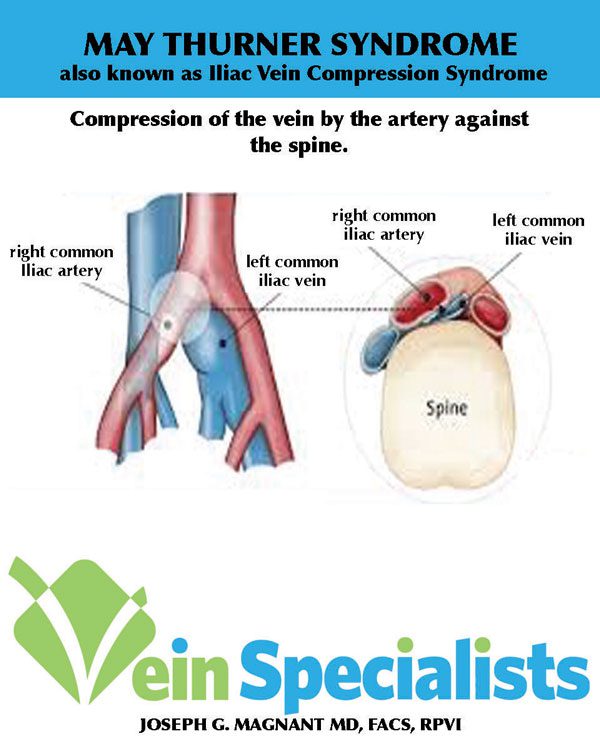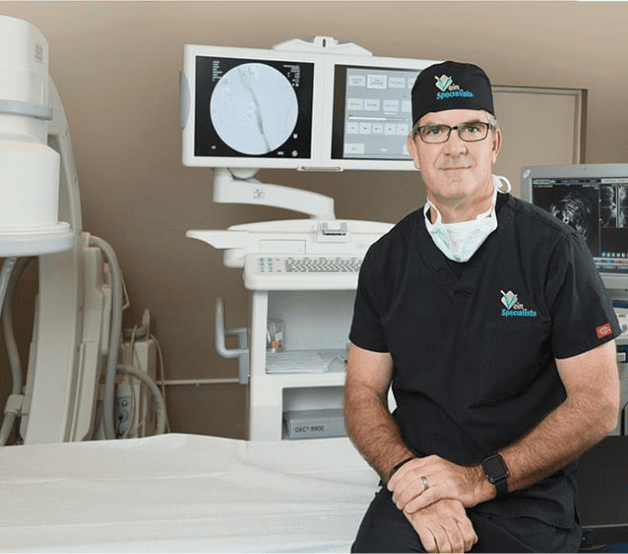What is Pelvic Congestion Syndrome?
It sounds like a rare ailment doesn’t it? Yet, PCS affects more than 10 million men and women in the United States. PCS most commonly affects women who have had pregnancies. This may be due to problems with enlarged varicose veins in the pelvic area due to leaky vein valves. Or it may be related to a narrowing in one of the important pelvic outflow veins called iliac vein. This can be caused by compression of the vein between the overlying artery and the spine on the other side. This is also called May Thurner Syndrome (see diagram).
The reason Pelvic Congestion Syndrome sounds rare, but really is somewhat common is that many cases of PCS go undiagnosed every year. That’s because many women are unaware of this condition and confuse the symptoms with other issues. Even some medical practices do. In fact, accurate diagnostic testing and treatments have only been available in the past 5 to 10 years.
If you have been living with undiagnosed chronic pelvic pain, you may be suffering from PCS. If you’re diagnosed with PCS, then you can find out if you’re a candidate for effective PCS treatment.











